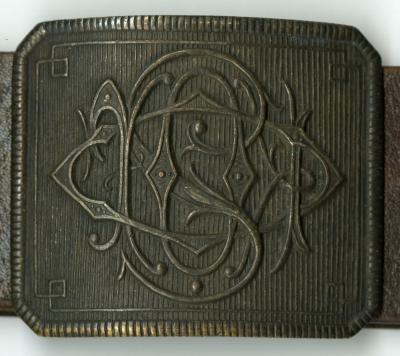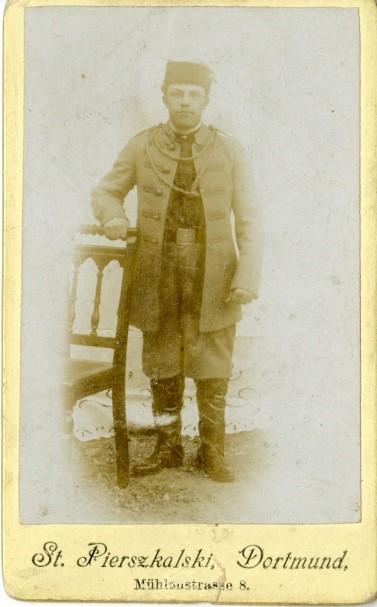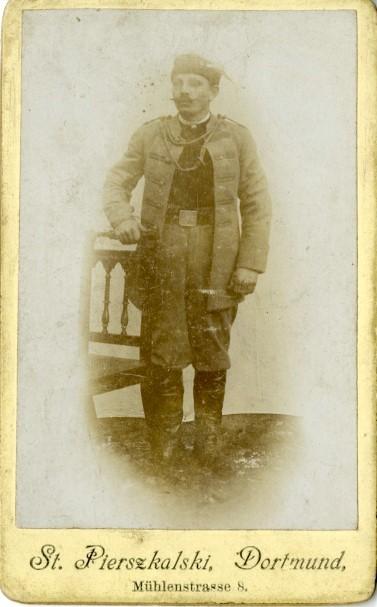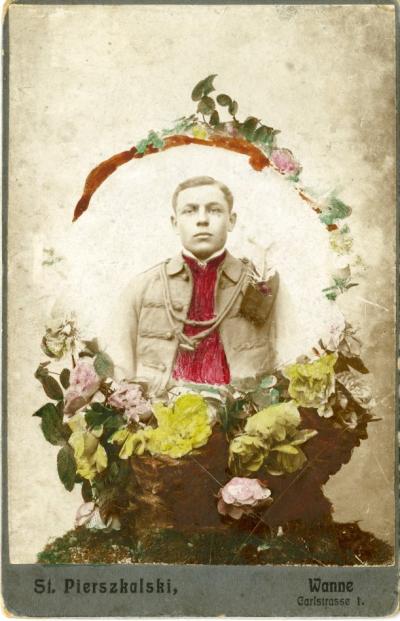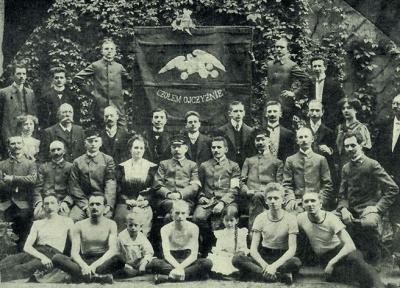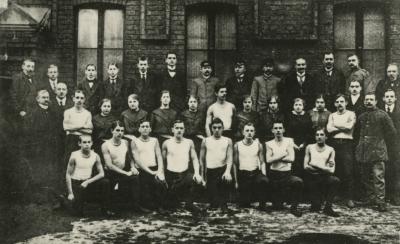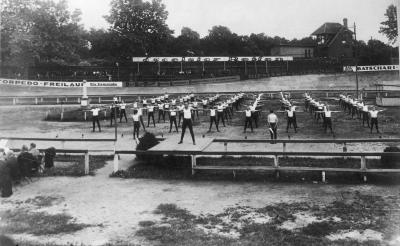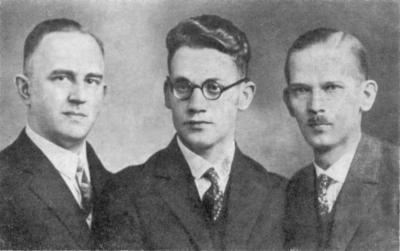The Polish gymnastics club “Sokół”
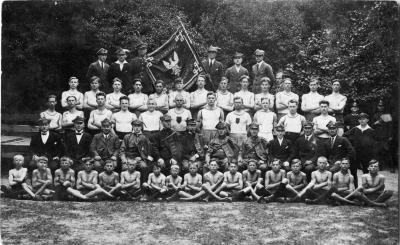
The Polish gymnastics club (or “Sokół”) was set up in Lwiw in 1867. Starting in 1885 it was active in the Prussian area. From the 1890s it was strongly influenced by a conservative national group called “Narodowa Demokracja” (National democracy). The first cell on German soil, called “Nest” was created in 1889 in Berlin. This was followed by others in 1898 in the Ruhrgebiet, 1894 in Breslau (Wrocław), 1895 in Beuthen (Bytom), 1901 in Leipzig and 1904 in Hamburg. These cells made up the five “Sokół” areas in exile, whose headquarters were in Poznań. The number of members rose rapidly and by 1914 no less that 5,500 persons (139 nests) – 46% of all members in the area of the German state – were organised in the “Sokół” in the Rhineland and Westphalia. The fact that Poles lived there in great numbers made it easier to create new nests. “Sokół” clubs were very effective in preventing young Poles from joining German sporting organisations. Gymnastic activities were clearly subordinate to national aims. It was primarily educational work which grew rapidly. The first Polish Boy Scout groups in Germany were created around “Sokół” clubs and many members joined the Polish army voluntarily to fight for Polish independence.
After the First World War people began to build up the organisation once more. The first Congress of “Sokół” clubs took place in Poznan in 1920: this was the last time that representatives from Germany took part. Here the delegates decided to reorganise the clubs. Two independent regions were created on German soil: in Berlin and West Germany. Stanisław Stroiński was elected as the chairman of the former. The members of the Berlin section worked out the so-called “Falcon Right” (prawo sokole) and between 1920 and 1921 the section also published a newspaper called “Sokół na Obczyźnie” (The Falcon Abroad). In 1921 both regions were united to become a club entitled “Sokołs in Germany” whose headquarters were in Gelsenkirchen. That said the independence of each region was to a great extent retained. The chairman was Franciszek Cichy, and the secretary J. Ratajczak.
Now there were not so many members in the ranks of the “Sokół” clubs as before 1914. Because people were returning to Poland their numbers sank continually from 4,500 in 1922 to 1,200 two years later. The organisation also had to deal with financial problems and with the antipathy of the authorities who made it difficult for them to hire sporting facilities like rooms and playing fields. The German authorities treated the “Sokół” as if they were a paramilitary organisation, thereby restricting their growth. There were other difficulties too. According to the organisation’s statutes members had to dedicate their activities solely to gymnastics and not to other increasingly popular sports like football. For this reason some young Poles chose to join German sports clubs who offered them more attractive facilities.
In 1927 attempts were made to reform the organisation but this led to its fragmentation. In Westphalia the “Union of Polish Gymnastics and Sports Clubs in Germany” which promoted all sporting disciplines, began to operate. Its chairman was Marian Kwiatkowski, and secretary Kazimierz Pietrzak. The “Sokół” organisation in Berlin did not recognise the decisions made in Essen and began to operate independently. A campaign was started to attract new members, and other sporting activities were allowed. In addition the Berlin organisation joined the League of German Workers’ Gymnastics and Sports Clubs, something which made it easier for them to rent halls and playing grounds. The Berlin Magistracy rented them a playing field in Plötzensee, where they organised training sessions and demonstrations. The members met up with the parents of young Poles in order to acquaint them with the aims and activities of the organisation. All events were announced in the newspaper “Dziennik Berliński”. Representatives from Polish diplomatic organisations and from the Union of Poles in Germany were present at these events. In 1928 the “Sokół Union of Polish Gymanstics and Sports Clubs” was set up in Berlin. During the early 1930s activities slowly died down as a direct result of the political situation in Germany. The ranks of the “Sokół” once more began to sink. At the turn of the 1930s the organisation had only 700 members and this number continued to decline constantly. Almost all circles either reduced their activities to special occasions, or ceased them completely.
The “Sokół” organisation was finally dissolved in September 1939.
Krzysztof Ruchniewicz, June 2014
